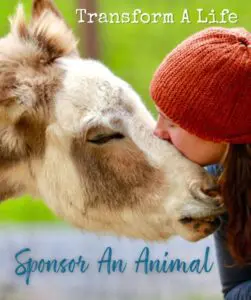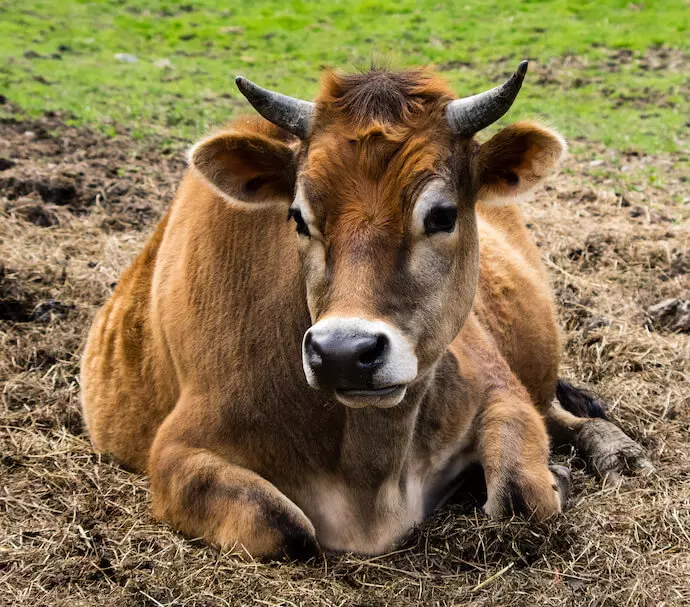Why Atlas Will Live
Yesterday, Catskill Animal Sanctuary received an irate e-mail from someone about Atlas the goat. We were shocked, as the response to our news that Atlas, crippled from neglect, was receiving a custom wheelchair that would painlessly increase his mobility had been overwhelmingly positive.
That is, until said e-mail.
“What is wrong with you people!!” it said. “PUT THAT POOR ANIMAL DOWN! You’re supposed to be loving compassionate animal caretakers and rescuers. Don’t you know when to stop? I’m sorry but you’ve gone way too far with keeping this poor thing alive.”
 When one loves an animal, her final gift to him is to know when it’s time to let him go, and to do so with clarity, courage, and love. At Catskill Animal Sanctuary, we’ve euthanized horses and rabbits, pigs and goats, chickens and sheep. When an animal’s quality of life is gone, our final act of love is to choose for him what we believe he would choose for himself, if he were able. When suffering is prolonged and hope is limited, then it is incumbent upon us to euthanize. And we do.
When one loves an animal, her final gift to him is to know when it’s time to let him go, and to do so with clarity, courage, and love. At Catskill Animal Sanctuary, we’ve euthanized horses and rabbits, pigs and goats, chickens and sheep. When an animal’s quality of life is gone, our final act of love is to choose for him what we believe he would choose for himself, if he were able. When suffering is prolonged and hope is limited, then it is incumbent upon us to euthanize. And we do.
For instance, when Lexie, an old mare from a horrific abuse case, recently went down in her stall and couldn’t stand, we made the decision to euthanize her. We could have gone to Herculean efforts to save her: taking down a wall in order to position the tractor properly to hoist her rear end with a tow rope. Just a month ago, we hoisted her in the pasture using this method. But with each passing day, Lexie was losing strength. Our fear was that she’d go down in the middle of the night and badly injure herself in her desperation to stand. There were other factors: Lexie was rapidly losing her vision and not coping well with the loss. She was the outcast in any herd of animals we tried to place her in. She never truly felt good. We quickly made the decision to end the life of an old, sad, extremely compromised animal whose back end could no longer support her. We called the vet, and as Lexie took her final breaths, she was surrounded by good people who loved her, and who’d given her for the past three years perhaps the only joy she’d ever known.
My grandfather might have wished for death long before it came. While my grandmother, virtually blind and getting around with the use of a walker, still wakes up with a smile each day. “I feel the same as I always did,” she recently confessed, giggling. “I just fall down all the time.” If you know animals, you know that their spirits are as varying as ours are—that, like humans, they embrace life with varying degrees of gusto. It is incumbent upon animal caretakers to know well those who are in our charge, and to look to them to guide us as we make this final decision on their behalf.
 So now we have Atlas. An elderly goat far more compromised than Lexie, or my grandmother, for that matter, for whom we are going to lengths some find disturbing so that he can walk again. Why? Because every life matters. Because trying mightily is part of our job description. But most of all, because Atlas wants us to. If this crippled being were depressed—not eating, listless, laying in his feces rather than struggling each day to get up and greet the world, then euthanasia would be the only humane choice. Any other option would run counter to the ethos that drives all that we do at Catskill Animal Sanctuary. But Atlas, The Little Goat That Could, has so much brightness and joy that to end his life because he’s crippled would be the ultimate cruelty. No. Atlas will live. Atlas will walk. It’s what he wants. It’s our job to know that.
So now we have Atlas. An elderly goat far more compromised than Lexie, or my grandmother, for that matter, for whom we are going to lengths some find disturbing so that he can walk again. Why? Because every life matters. Because trying mightily is part of our job description. But most of all, because Atlas wants us to. If this crippled being were depressed—not eating, listless, laying in his feces rather than struggling each day to get up and greet the world, then euthanasia would be the only humane choice. Any other option would run counter to the ethos that drives all that we do at Catskill Animal Sanctuary. But Atlas, The Little Goat That Could, has so much brightness and joy that to end his life because he’s crippled would be the ultimate cruelty. No. Atlas will live. Atlas will walk. It’s what he wants. It’s our job to know that.
Rescues, Why Sanctuaries Matter
Tags






Thank you! I Wished many more people would understand this!